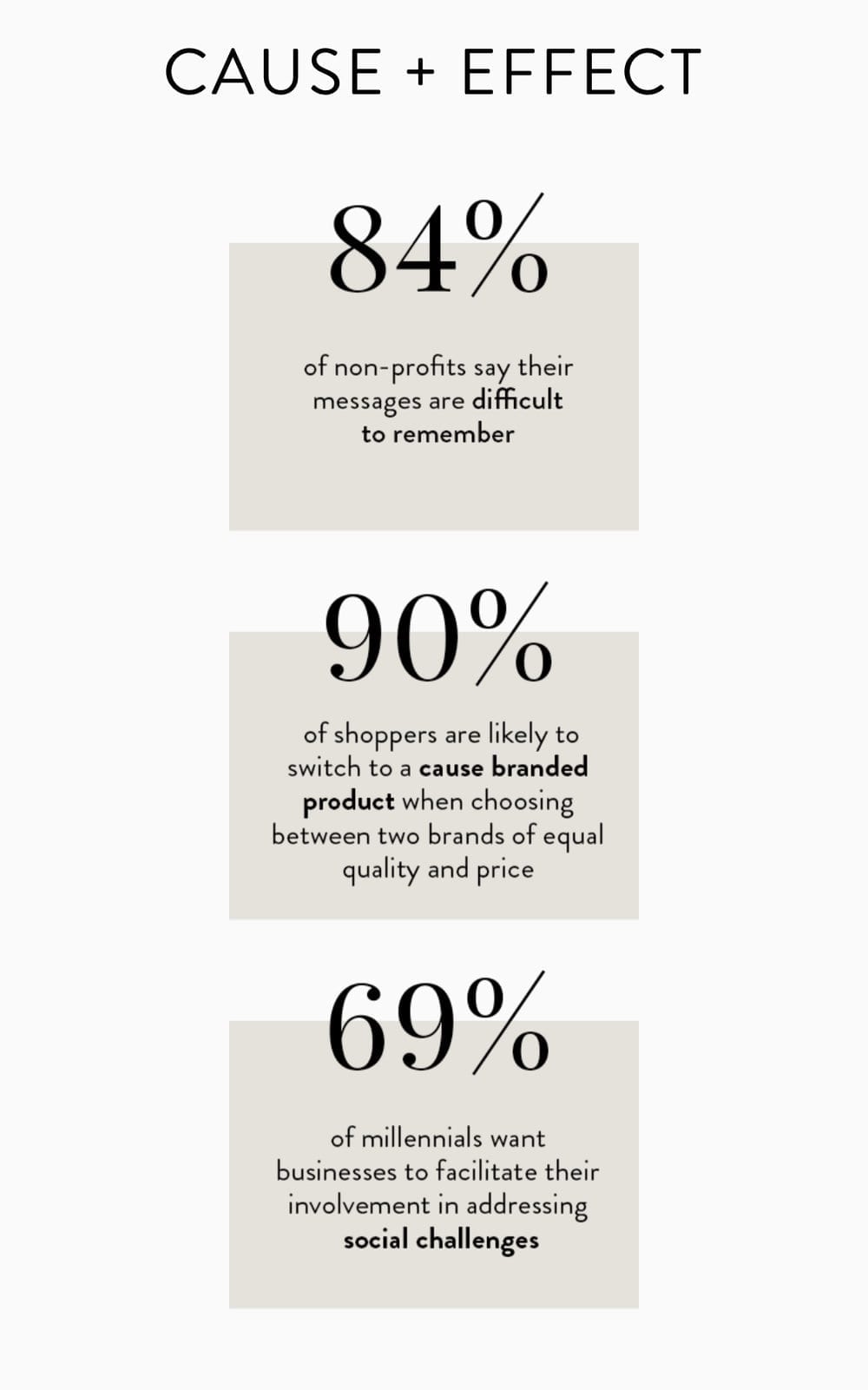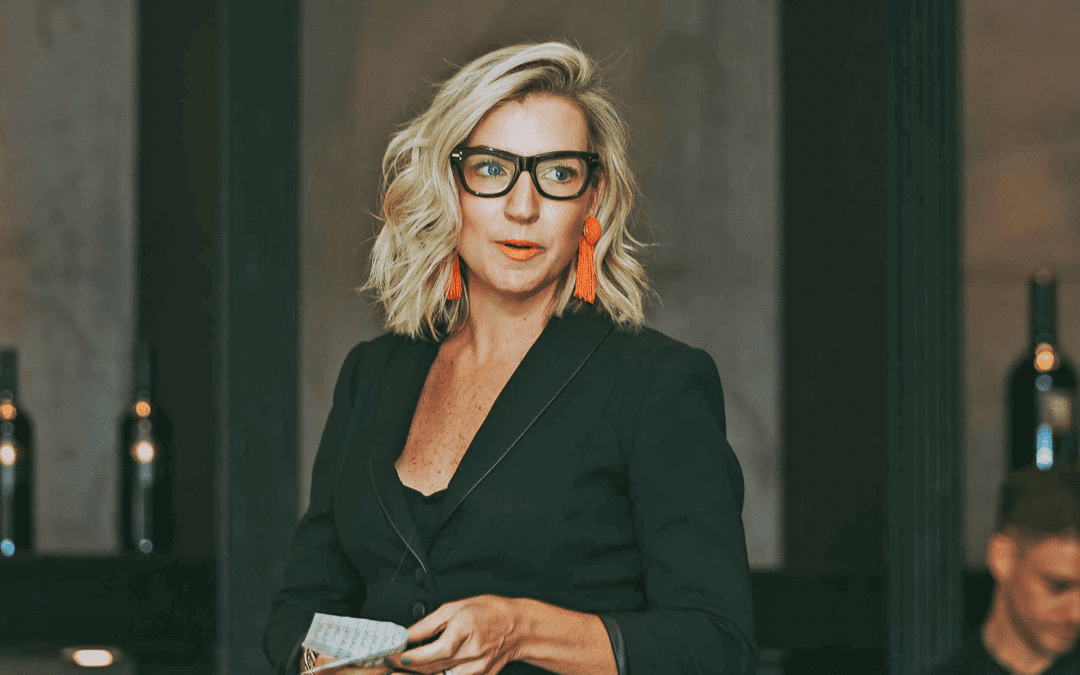Shannon De Laat spent 17 years building brands and developing business communication strategies for high-end consumer and luxury companies, including Johnson & Johnson, L’Oréal, Dermalogica, HL Group, and Weber Shandwick. She then took a dramatic leap by founding The Virtue Project, where she applies her superpowers of creating branded content to nonprofits and cause-based companies. Ezra Productions talked to Shannon and her partner Daniella Macri about how the right powerful message can shape a brand or, in her case, a life.
You and your partner Daniella had very successful careers in marketing and strategic communications. Why did you leave that to start The Virtue Project?
Both of us come from the consumer marketing space — from luxury brands, beauty, food and beverage and fashion to corporate communications. The reason I founded The Virtue Project — and Daniella quickly joined as my co-captain — is our shared desire to apply our expertise to organizations dedicated to doing good. We started thinking more and more about our legacy (our children’s future) and embraced that if our role wasn’t supporting the solution, then we’re actually part of the problem.
You’ve mentioned that social justice is part of your “DNA” because your family often hosted children from Friends of Chernobyl, Fresh Air Fund and other charities. How did your parents prepare you for the change?
I think because I was introduced to these scenarios and new children in our home at such a young age, it became part of my “normal.” As a mother now, I see the importance of leading by example. My son is three, and he has already begun to experience this. Through a program here in LA via The Alliance of Moms, we currently mentor a young family navigating a life after aging out of the foster care system. Our son has had many play dates, and quality time with the two children and is learning how the simple act of “showing up” and providing a dependable relationship for these young families can help build a more positive future.
When I was really young, my mother told me: “The only way we are ever going to ensure peace on this planet is to adopt the entire world as our family.” I guess that really stuck with me!
As founder and female CEO of The Virtue Project, how do you bring those lessons to your clients?
It’s all about using empathy to empower others, to engage transparently and honestly with each other, with our clients and partners. And we do it with our own brand of cheekiness to keep it real.
 Now that the world is so small and connected, how important is it for companies to be — and clearly communicate that they are — socially aware, culturally inclusive, and environmentally friendly?
Now that the world is so small and connected, how important is it for companies to be — and clearly communicate that they are — socially aware, culturally inclusive, and environmentally friendly?
It is no longer an option: The consumers most brands are after demand more, and rightly so. For the younger generations, and those that care about their future, the narrative is a plane in crisis and action is required now. But they also are savvy to those who are clearly in it to tick a box on their do-gooder list versus those who connect their core values to their sustainability in a meaningful way.
How does The Virtue Project help companies and charities find the stories at the heart of their ventures that could help an audience connect to and trust their products … and the way their products and company affect the world at large?
We love to help brands find their purpose, and it always starts with their vision, mission and core values. And if those aren’t clear, then that is exactly where we start. Purpose-driven companies know that this is how to do it right, and it may mean redefining their whole strategy. As a nimble team of two with the support of a broad network of change agents, we dive right in and become partners at the table, an extension of the internal team and treat it like it was our own business.
In your opinion, how important is it for potential customers to actually experience a client’s story — to be immersed in the emotion of it — rather than just learn the facts or benefits of the product or service?
We know that what people connect to are stories that create an emotional response. Facts or benefits are important, and definitely provide credibility, but without a relatable story you’ll be lost in the noise. In the words of Steve Jobs: “The most powerful person in the world is the story teller. The storyteller sets the vision, values and agenda of an entire generation that is to come.”
We love Patagonia’s video content, which is helping to redefine their storytelling (especially the Worn Wear stories).
How important are images — for instance, social media video production and stills — for creating an emotional experience and building a branded content story?
Visual storytelling is a captivating and extremely powerful way to tell a story. Think about our connection to films and television and the influence they have on us and it’s no surprise that we gravitate towards it on our new broadcast channels in social media. And the algorithms that control what we see on our feeds prioritizes quality video that is resonating with audiences, so it’s a wise investment to incorporate into any content strategy.
While the ease of producing videos is helped along by the phones at our fingertips, and unpolished is often preferred, it should still begin with a strategy to ensure it’s the right message delivered the right way, to the right people!
What social media video platforms continue to be important to The Virtue Project’s clients, which are fading, and which are emerging?
We are still seeing Instagram and Facebook as the primary platforms but depending on the objectives, LinkedIn should never be far behind. For many nonprofits, this is where they can connect with potential partners or donors. Like the rest of the world, we have our eye on TikTok but only for those partners trying to connect with Gen Z and have the social authority to even try. Pinterest and Twitter are always part of our consideration set, and when developing a content strategy, we define the role of each platform to ensure we’re leveraging these channels in the best way.
What final advice do you have for future female CEOs and female entrepreneurs who want to build a mission-driven business that’s also profitable?
Please join us — the world needs more of it! As inspired by one of our favorite female entrepreneurs, Jaclyn Johnson, we value collaboration over competition.
Also, practice what you preach: Take the steps to define your own vision, mission, values and purpose so that you may be a guide for others.
Be inspired by Shannon and her work at The Virtue Project: Tell your company’s visual story with heart, purpose, and strong images by creating video content with Ezra Productions. As a woman-owned company, Ezra Productions is an award-winning production house that’s committed to working with women, minorities, and people of all ages to produce compelling, branded content for our clients.

